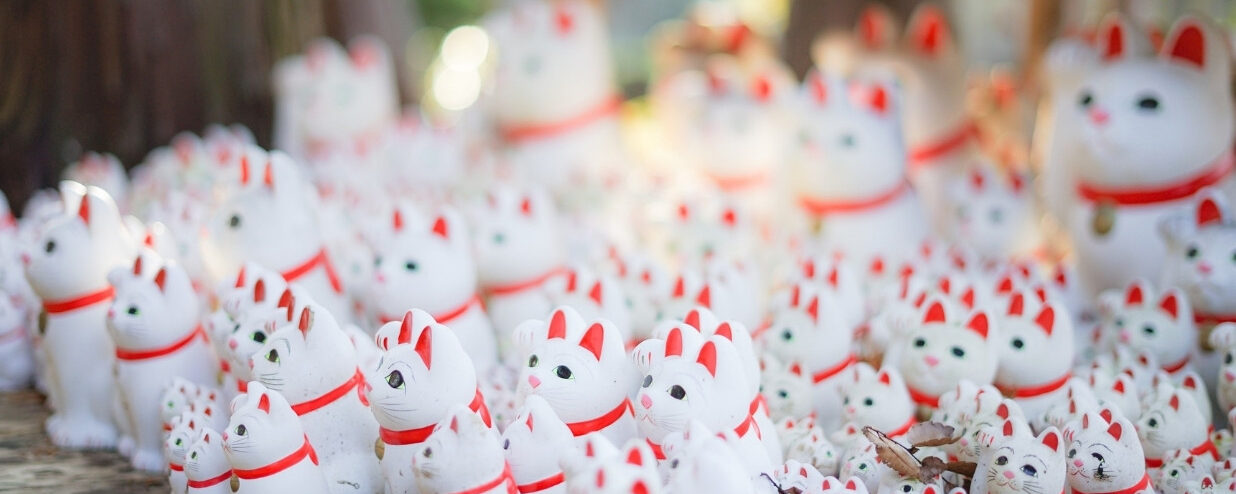While you might not believe in the otherworldly mythology, it’s best to avoid going against Japanese superstitions. That is because while there are a lot of countries with its own unique beliefs, Japan takes the occult taboos to another level! They’re so baked into the culture that everyone is probably familiar with them.
From hiding your thumb to holding your chopsticks wrong, these seemingly small actions might spiral you into a series of unfortunate events — or, worse, curses.
Here are some fascinating Japanese superstitions you should know – some will surprise you!
What is Superstition in Japanese?
In Japanese, the word for superstition is 迷信 (meishin).
In the United States, Halloween is a time for everything spooky and horrific.
Young people in Japan celebrate Halloween, too, but traditionally, there is another month reserved for scary stories and horror myths: August. Around this summertime, Japanese people celebrate a Buddhist festival called Obon, which is a time when they honor the dead and ancestors by inviting them back to the human realm.
A lot of these may seem strange to someone who’s not familiar with Japan as they’re based on the country’s history, mythology and culture. That being said, some have more unique origins, and we’ll be sure to cover those.
Common Superstitions in Japan
1. Hide Your Thumb When a Hearse (Funeral Car) Passes By

When you see a hearse or a funeral car, you hide your thumbs in the palm of your hand. In Japanese, ‘thumb’ is written as 親指 (oyayubi・おやゆび). 親 (oya・おや) translates to ‘parent’, while 指 (yubi・ゆび) translates to ‘finger’. Together, it literally means ‘Parent finger’, as the thumb is your first finger.
What does this mean, and why is it important to “hide your thumb”? In ancient Japan, it was believed that spirits of the dead could enter the body through any opening, including fingernails. By tucking your thumb into your palm, you symbolically close off that entrance. Even today, many Japanese children are taught this Japanese superstition by their elders as a way to show respect for the dead.
Plus, it is also believed that your parents will die early if you don’t hide your thumb.
2. Japanese Wedding Taboos: Words You Shouldn’t Say
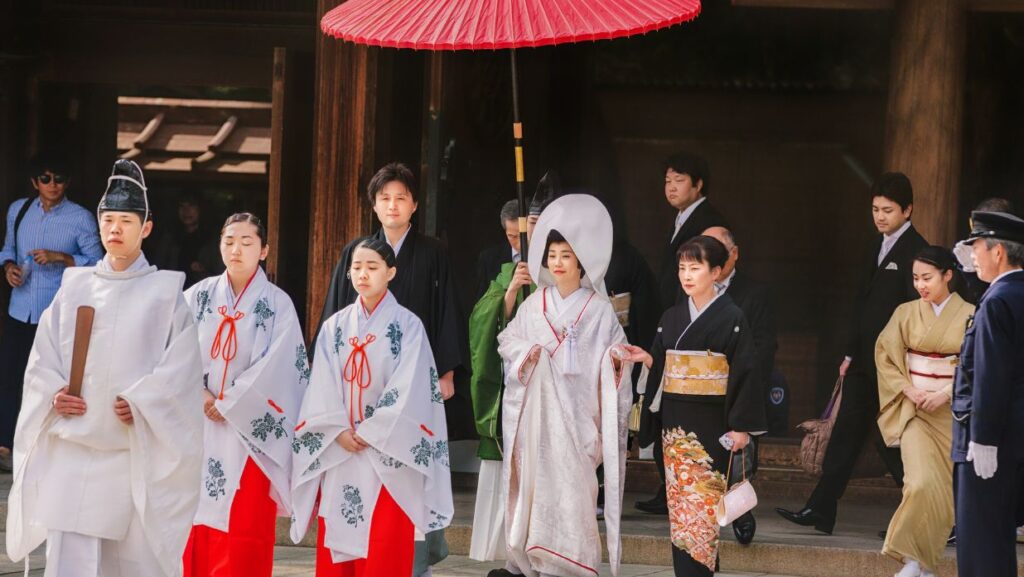
At a Japanese wedding, it’s important that you don’t say the words 帰る (kaeru・かえる) or 戻る (modoru・もどる). 帰る means to ‘go home’ while 戻る means to ‘return’. Saying these two phrases at a wedding is considered to be bad luck and will jinx the marriage. This will supposedly cause the bride to leave the groom and go home and return to their parents. These aren’t the only terms you should avoid at a wedding.
Generally, anything related to breakups or death should be avoided. Besides not saying certain things, Japanese culture frowns upon giving wedding gifts in certain amounts. It is considered customary for guests to bring gift money called goshugi on the day of the wedding. The number can go as high as 100,000 yen, but it’s not fixed.
What you want to do is to avoid numbers starting with even numbers such as 2, 4, and other multiples of these. Why? Because these numbers can be divided, nudging the idea that the newlywed will split.
3. Japanese Lucky Numbers, 7 and 8
In Japanese culture, certain numbers are considered especially lucky. Unlike unlucky numbers such as 4 (四, shi) and 9 (九, ku), which are associated with death and suffering due to their pronunciation, the numbers 7 (七, nana) and 8 (八, hachi) are strongly linked to prosperity and good fortune.
Seven (7): A Sacred and Lucky Number
The number 7 is one of the luckiest numbers in Japan, largely due to its deep ties to Buddhism and traditional beliefs:
- The Seven Lucky Gods (Shichifukujin – 七福神) are revered for bringing prosperity, longevity, and success.
- In Buddhist customs, a memorial service is held on the seventh day after someone’s death to honor their soul, highlighting the spiritual importance of this number.
- Additionally, in Japanese numerology, 7 symbolizes luck and perfection, making it a favored number in lotteries, celebrations, and even business names.
Eight (8): A Symbol of Wealth and Growth
The number 8 is another highly regarded lucky number in Japan, though slightly less popular than 7. Its positive meaning comes from its shape and its connection to prosperity:
- The kanji for 8 (八, hachi) has a widening shape, resembling a traditional folding fan (sensu). This broadening form represents expansion and growing fortune, a concept known as suehirogari (末広がり).
- In business, the number 8 is commonly used in pricing and phone numbers to attract financial success.
- The date August 8 (8/8) is sometimes considered particularly auspicious for starting new ventures.
These beliefs about lucky numbers in Japan continue to influence daily life, from choosing license plates and wedding dates to booking hotel rooms. If you want to maximize your luck in Japan, keep these numbers in mind!
4. Avoid Japanese Unlucky Numbers, 4 and 9
| Number | Meaning | Why ? |
| 4 (四, shi) | Unlucky | Sounds like “death” (死) |
| 7 (七, nana) | Lucky | Linked to Buddhism and the Seven Lucky Gods |
| 8 (八, hachi) | Lucky | Symbolizes growth and prosperity |
| 9 (九, ku) | Unlucky | Sounds like “pain” or “suffering” (苦) |
In Japanese, the number 4 (shi) sounds like the word for death (死), and 9 (ku) sounds like suffering (苦). That’s why you’ll often see hospitals and hotels skip room numbers like 404 or 49.
The number 9 (九) is usually pronounced kyuu, but in certain cases, like September (九月, kugatsu), it is read as ku. Since ku sounds like “pain” (苦), this pronunciation is often avoided in superstitious contexts, especially in hospitals or gifting.
4. Lie Down After a Meal to Turn Into a Cow
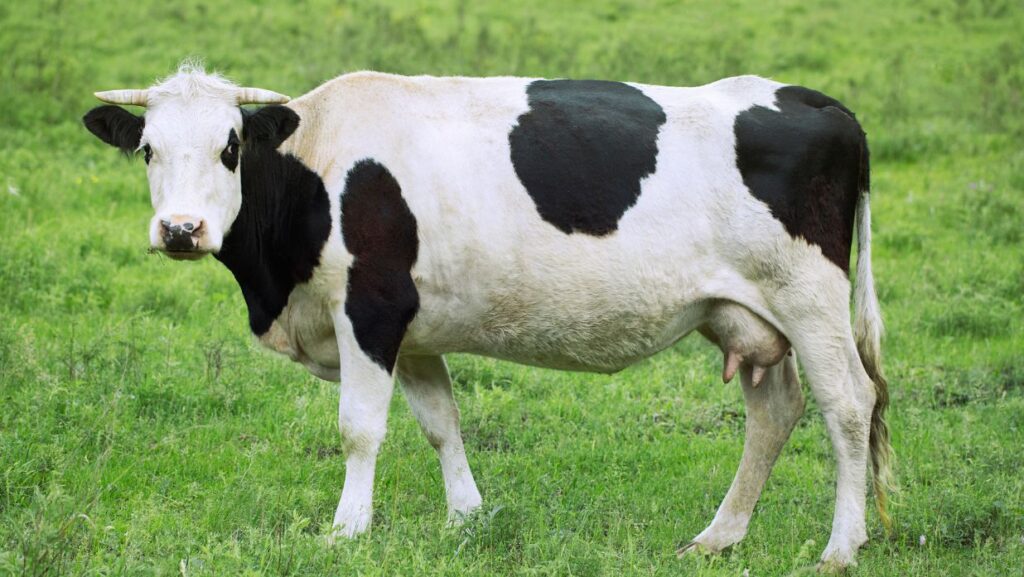
The title really gives it away, but this is a superstition in Japan. In Japan, there’s a playful superstition that if you lie down right after eating, you’ll “turn into a cow.” Bear in mind that no one really believes this. It’s just something said to children to prevent them from being lazy or lounging around!
5. Purification with Salt

Salt in Japan is used in a lot of purification rituals. It is believed to have a cleansing effect and is thought to be capable of purifying people spiritually. You may notice its use at funerals, where those who attended will scatter salt on them and their front doors to prevent evil spirits from following them. It’s similarly used in weddings and even sumo matches.
Another practice involving salt is 盛り塩 (morijio・もりじお), literally meaning ‘pile of salt,’ where — you guessed it — piles of salt are put alongside an entryway. This is meant to attract customers and ward off evil spirits. So, if you ever see a pile of salt in Japan, leave it be, as someone might have put it there on purpose.
But purification with salt isn’t limited to funerals. Sumo wrestlers also use salt before a match as part of a traditional ritual. Before stepping into the ring, sumo wrestlers scatter handfuls of salt onto the dohyō (sumo ring) to purify the space and drive away bad spirits. This act, rooted in Shinto beliefs, is meant to ensure a fair and honorable fight.
Another common salt practice is 盛り塩 (morijio), or “piled salt,” where small mounds of salt are placed at entryways to attract good fortune and ward off negativity. You may notice this outside restaurants and businesses, as it is believed to invite more customers.
So, if you ever see salt piles in Japan, don’t be surprised—it’s likely there for spiritual protection!
Learn more about sumo on our Japanese Martial Arts blog!
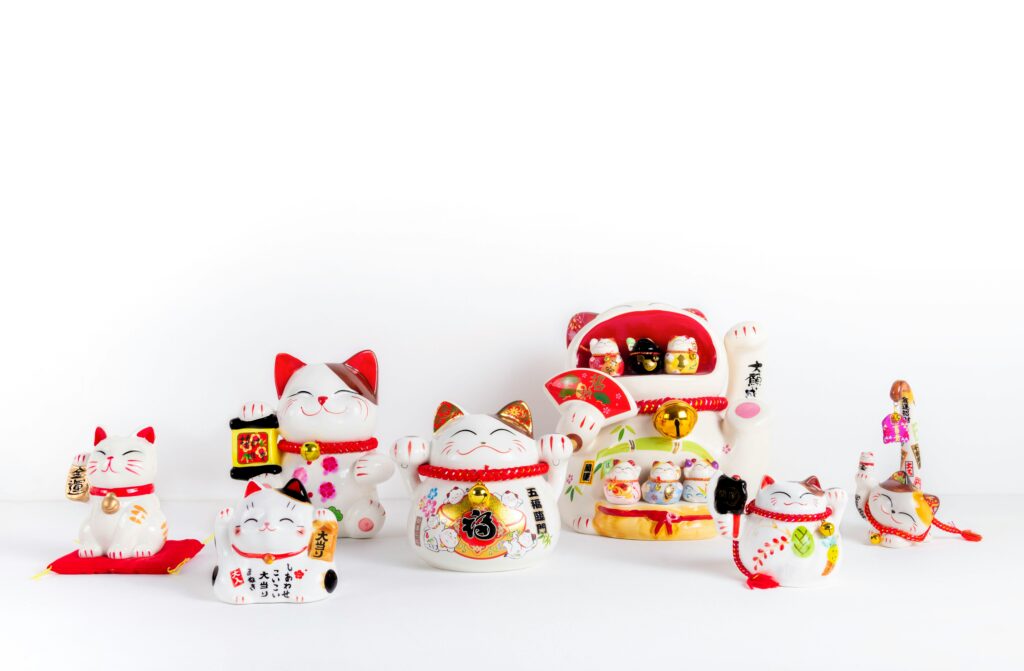
6. Japan’s Lucky Cat
This one? You probably know. The manekineko (招き猫 ・まねきねこ), or ‘beckoning cat’, is one of Japan’s most recognizable superstitions. We can even go as far as saying it’s a cultural icon. You’ve probably seen or owned some version of a manekineko, as they’ve been sold all around the world as all kinds of trinkets. How to tell if something is a manekineko?
Typically, manekineko are depicted as seated cats with a single paw raised. The paw is meant to look like it is beckoning you towards it (hence the name). They are also commonly seen with a koban (小判 ・こばん), an old oval gold coin. If you see a manekineko with its left paw raised, it is meant to attract customers. If its right paw is raised, it’s meant to attract money.
Its origin isn’t set in stone, but the most popular legend is that of the Goutoku-ji temple, where, while out hunting, the 大名 (daimyo・だいみょ) Ii Naotaka was beckoned by a cat to the temple. In doing so, it saved him from a lightning bolt. Feeling gratitude he erected a statue of the cat and made it a patron of the temple, where it became the symbol it now is. Whether or not this is true, we don’t know, as this is not the only story involving the manekineko. Still, the cat lives on as an immensely popular and recognizable figure.
Fun fact: If you’re familiar with Pokémon, the Pokémon Meowth is based on the manekineko.
Related article: Japanese Animal Vocabulary
7. A Crow’s Cawing
Crows have an interesting significance in Japan. It’s a bad omen to hear one cawing, usually indicating that bad luck or death will come upon you. This belief originates from yatagarasu (八咫烏・やたがらす), a three-legged crow known as a Shinto guiding god. In Shinto mythology, yatagarasu guided Emperor Jinmu to Kashihara in Yamato, acting as a divine messenger. Because crows symbolize communication with the deities, their cawing often signals divine intervention, which people associate with bad fortune.
8. てるてる坊主 (teruterubouzu) to Ward Off the Rain
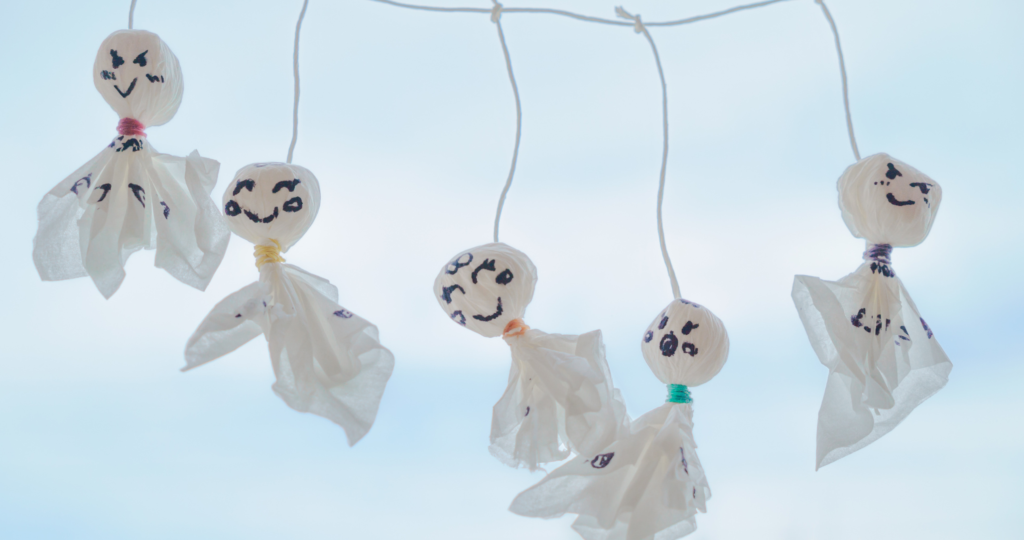
Teru teru bozu are rain charms meant to bring good weather. てる, or 照る, means shine, and 坊主, means a Buddhist monk. People in Japan, mainly kids, hang them up either to prevent rain from happening during a school outing or to stop a rainy day. Nowadays, kids make them with tissue or cotton, but they were originally hung up by farmers and made with white paper or cloth.
You can also make a reverse rain charm. By hanging the teru teru bozu upside-down, you’ll wish for rain.
9. Don’t Hang Clothes Out to Dry at Night
You shouldn’t hang your clothes out at night, because you’ll be practically begging a spirit to come and haunt them. This came about as there used to be a belief that clothes retain an owner’s spirit after death. Back in the day, kimonos were passed down from parents to their children due to their expensive price. The soul of the diseased is believed to live in an old kimono, which created the custom of hanging traditional Japanese clothes of the diseased at night.
Time passed, and such custom turned into this superstition that believes that hanging laundry at night may call the soul of the diseased, who shall also bring bad luck related to death.
Now, when left out to dry during the day, the spirit could be cleansed. So, if you leave your clothes out to dry at night, your clothes will attract any nearby roaming spirits.
10. Blood Type Personality Test
Less a Japanese superstition and more a pseudoscience, there is a belief in Japan that your blood type dictates your personality. Unlike a lot of the other superstitions on here, this one is actually believed by quite a few today!
Those with type A blood are described as 几帳面 (kichoumen・きちょうめん), meaning well-organized and meticulous. In contrast, type B individuals are often labeled 自己中 (jikochuu・じこちゅう), or selfish. Meanwhile, type AB is seen as a mix of both and considered 変わり者 (kawarimono・かわりもの), meaning eccentric.
Finally, type O. If you are type O, you are 楽観主義 (rakkanshugi・らっかんしゅぎ), or optimistic. There’s no real science backing up this belief, but it can be fun to categorize yourself. Did it get it right for you?
11. Never Stick Your Chopsticks Upright
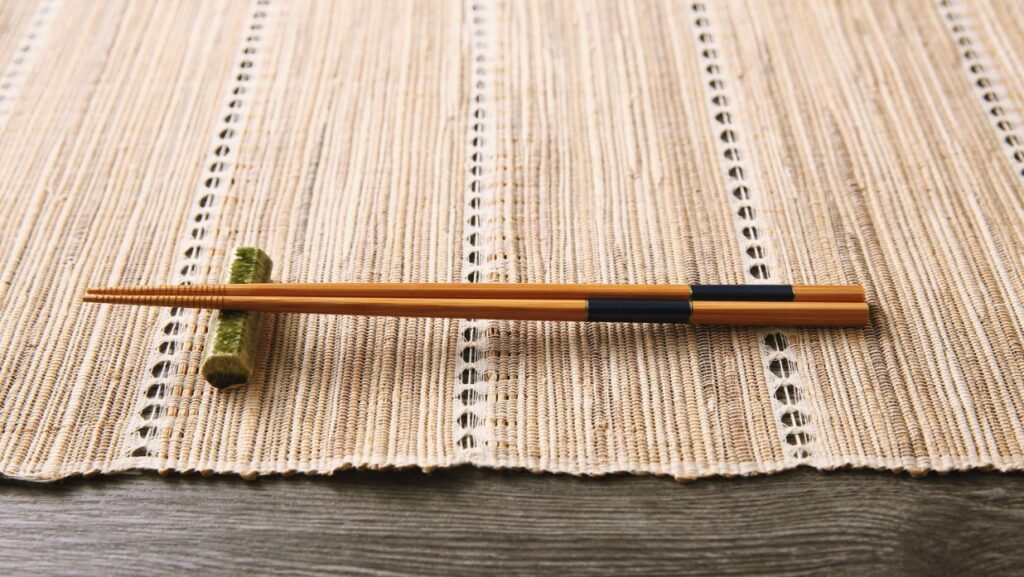
Sticking chopsticks vertically into a bowl of rice brings extremely bad luck in Japan because it closely resembles a Buddhist funeral ritual. During these ceremonies, people place incense sticks upright in the sand to honor the dead. Since this gesture is linked to death, using chopsticks this way during a meal appears disrespectful and may invite misfortune.
Instead, if you need to put your chopsticks down, rest them on a chopstick holder or lay them across the bowl, not inside it. This small etiquette rule is important in Japan, especially when dining with locals.
12. Sleep While Facing North
In Japan, sleeping while facing the north is considered bad luck and brings death. The explanation for this is that only the deceased’s body is placed facing the north in funerals.
13. 初夢 (Hatsuyume): What Your First Dream of the Year Means in Japan
In Japanese, there’s a famous saying: 一富士二鷹三茄子, which literally means “First Mount Fuji, second a hawk, third an eggplant.”
According to tradition, if you dream of these three things — in that exact order — during your first dream of the year, it’s believed to bring good luck for the year ahead.
This saying is believed to have originated from the three favorite things of Tokugawa Ieyasu, the founder of the Tokugawa Shogunate, which ruled Japan from the Battle of Sekigahara in 1600 until the Meiji Restoration in 1868.
Did you know they’re also a form of wordplay?
Each item sounds like a Japanese word associated with good fortune, giving this tradition both symbolic and linguistic meaning:
- Mount Fuji (富士 / Fuji) sounds like 無事 (buji), which means safety, peace, and不死 (fushi) – immortality (a symbol of protection and long life)
- Hawk (鷹 / Taka) sounds like 高い (takai), the Japanese adjective meaning tall. This represents ambition, strength, and success.
- Eggplant (茄子 / Nasu) sounds like 成す (nasu), which means to accomplish. This symbolizes prosperity and the realization of goals.
14. Writing Someone’s Name in Red
In Japan, writing someone’s name in red ink is considered highly disrespectful — and even ominous. Why?
Traditionally, names on graves and death notices are written in red, so using red ink for a living person’s name implies they are dead or will die soon. For this reason, it’s seen as deeply unlucky.
Even today, it’s considered poor etiquette to use red ink when writing letters, cards, or notes that include someone’s name, especially in formal or professional settings. When in doubt, stick to black or blue ink.
15. Having Big Ears Means Being Lucky

In Japanese culture, having big ears is considered a sign of good fortune. This belief comes from Hotei (布袋), one of the Seven Lucky Gods, who is often depicted as a cheerful, plump figure with notably large ears. Hotei symbolizes wealth and happiness, so people with big ears are thought to be destined for prosperity and good luck.
So, if someone compliments your ears in Japan, it might just be a wish for your success and happiness!
16. Spider Brings Good Fortune in the Morning
Unlike in many Western cultures, where spiders might cause unease, in Japan, seeing a spider in the morning is considered a sign of good luck. It’s believed that spiders found early in the day bring fortune and happiness, so you should let them be rather than chase them away.
However, spotting a spider at night can have a different meaning, because they are then demons’ accomplices.
17. Tea Leaves Reading
While tea leaf reading isn’t common in Japan, there is a charming superstition about 茶柱 (chabashira) — when a tea stalk stands upright floating in your cup of green tea.
This rare occurrence is considered a sign of good luck and prosperity for you and your family. Many people feel it’s a joyful omen, so spotting a chabashira can brighten your day and bring positive energy.
18. Breaking a Comb or a Hairpin Is Bad Luck
Because hair accessories are close to your head — associated with your life and spirit — breaking them is believed to bring misfortune.
19. It’s Bad Luck to Whistle at Night
Whistling after dark is thought to attract snakes, ghosts, or even thieves. This warning is often told to children to keep them indoors and quiet at night.
20. Don’t Sleep with Your Fan On
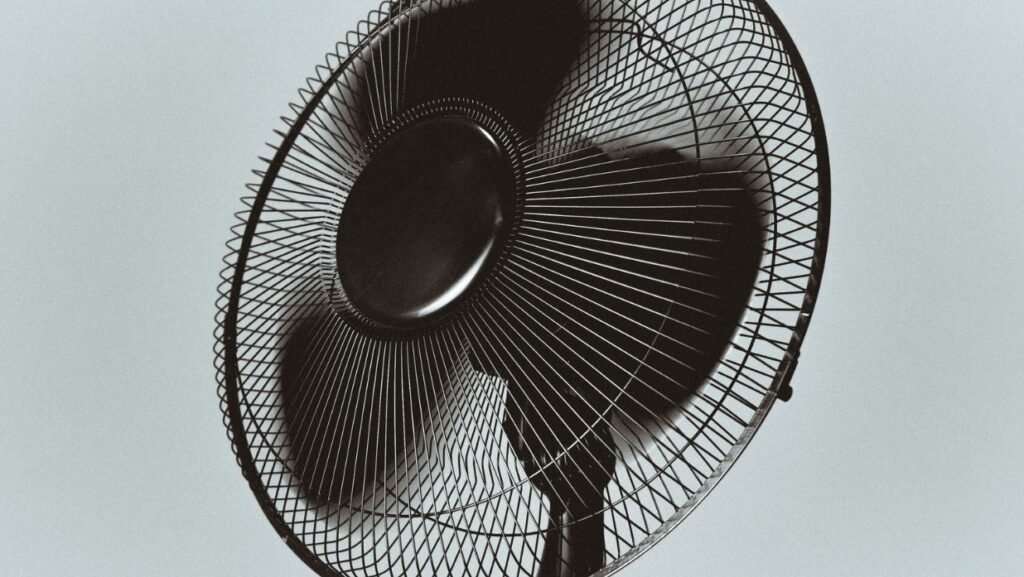
During Japan’s hot and humid summers, turning on a fan while you sleep is a common way to stay cool. But before you do, consider this: there’s a longstanding superstition called 死の風 (shi no kaze), or “death wind.” It warns that sleeping with a fan blowing directly on you can cause death.
While this Japanese superstition likely originated from real concerns about heatstroke or poor air circulation, it still remains a popular cautionary tale in Japan. Many people use timers or position fans carefully to avoid “the death wind” and sleep peacefully.
Conclusion
Have you ever heard of these Japanese superstitions before? We hope you enjoyed the list! It’s important that you know that most Japanese people don’t really believe in a lot of stuff on this list; it’s just fun to know that it exists. Japanese superstitions are a fascinating mix of history, religion, and culture. While many people today see them as fun traditions rather than strict beliefs, they continue to influence daily life in subtle ways. Next time you’re in Japan, watch out for these customs—who knows, maybe a lucky number will bring you good fortune!
Start taking Japanese lessons and learn more than just superstitions!
Get in touch with us and let us know how we can help you achieve your Japanese language target. If you’re unsure where you are, we provide a free Japanese level check.
FAQ
Why is the number 4 considered unlucky in Japan?
The number 4 is pronounced shi, which sounds like the word for “death” (死). Because of this, many hospitals and hotels in Japan avoid using the number 4 in room numbers and floors.
What does sticking chopsticks into rice mean?
Placing chopsticks upright in a bowl of rice resembles a Buddhist funeral ritual, where incense sticks are placed similarly. Doing this during a meal is considered extremely bad luck.
Why is whistling at night considered bad luck in Japan?
Whistling at night is said to attract snakes or evil spirits. This superstition likely comes from old beliefs that criminals and supernatural beings use whistles to communicate in the dark.
Why do Japanese people hide their thumbs when a hearse passes?
The thumb in Japanese is oya yubi (親指), meaning “parent finger.” Hiding your thumbs when seeing a hearse is thought to protect your parents from early death.
Why shouldn’t you cut your nails at night in Japan?
A Japanese superstition warns that cutting your nails at night could shorten your lifespan or prevent you from being with your parents when they pass away.
